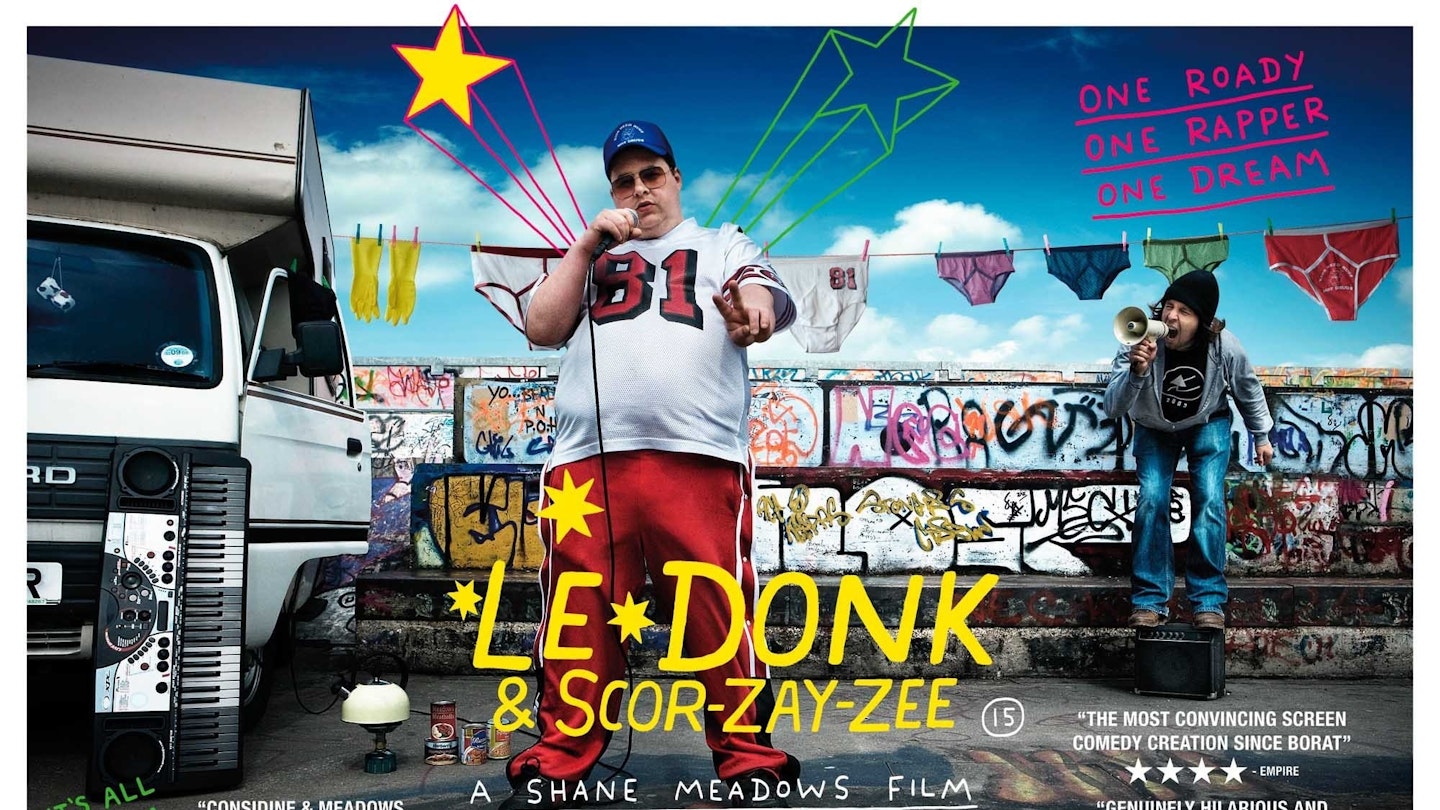And so Shane Meadows quietly continues the business of being one of the most exciting, reliable, relevant Brit filmmakers there is… and somewhat surprising, too. Yes, we knew he could ‘do’ funny — his films usually display ready wit — it’s just often grounded in grit. Particularly his work with Paddy Considine, who was terrifyingly unpredictable in A Room For Romeo Brass and plain chilling as a relentless avenging angel in Dead Man’s Shoes. Here, Meadows masters straight-out comedy and Considine isn’t dangerous, he’s a buffoon. Not one without an edge — certainly to begin with, where, whether by accident or design, Considine’s screen history plays into the idea that Le Donk could fly off the handle. It just quickly becomes apparent that his bluster and banter disguise a deeply insecure, mostly harmless bully: less Alpha male, more Beta boy who never grew up (he’s the sort of bloke who would have loved school). And, unintentionally, very, very funny…
What are the choice jokes? Recounting them won’t work — you really have to be there, savouring the awkward air as Le Donk confronts his ex-girlfriend’s new fella, or reveals the excruciating, name-dropping rap he wants to roll out with Scor-Zay-Zee in support of “the Artical Monkeys”. The shock is how consistently the laughs keep coming. Production limitations shouldn’t be used to justify or excuse in a review, but it’s hard not to note that this feature was made in a mere five days, with less money than Michael Bay spends on megaphones. Couple that with the filmmakers-in-the-film format and the long-established friendship between director and star, and it’s remarkable the picture isn’t a self-indulgent mess, let alone as accomplished and, oddly, touching as it is. Because there
is heart with the humour: both in Le Donk’s sadness and bemusement over how he’s destroyed his latest relationship and his by turns mentoring and bullying dynamic with “Scorz” (an unlikely looking but real-life rapper). The film only really falters — as you feel its makers try to shoehorn in a structure — with Le Donk’s dash to be at the birth of his nipper, but even that serves to illuminate our (anti)hero. The story is less about plot than it is the journey of a character, as Le Donk comes to realise (part of) the truth about himself.
With the docu-style and concert setting, comparisons can inevitably be made with the rock-mocking This Is Spinal Tap or Ricky Gervais’ classic comedy of social embarrassment, The Office. Perhaps the most relevant touchstone, though, is King Of Comedy, with the focus on an ambitious, possibly unhinged individual who elicits sympathy in spite of himself. Le Donk is likable — even lovable — despite his arrogance. You know he’s not malicious, just
a little dumb. Considine is quite brilliant — the fulcrum of the film both as performer and de facto co-writer (as so much is obviously improvised). As an actor he’s always been an eye-magnet, but he’s never had to carry quite so much as he does here, delivering the most convincing screen comedy creation since Borat — but a good deal kinder and everyday, finding the funny in something like life.
